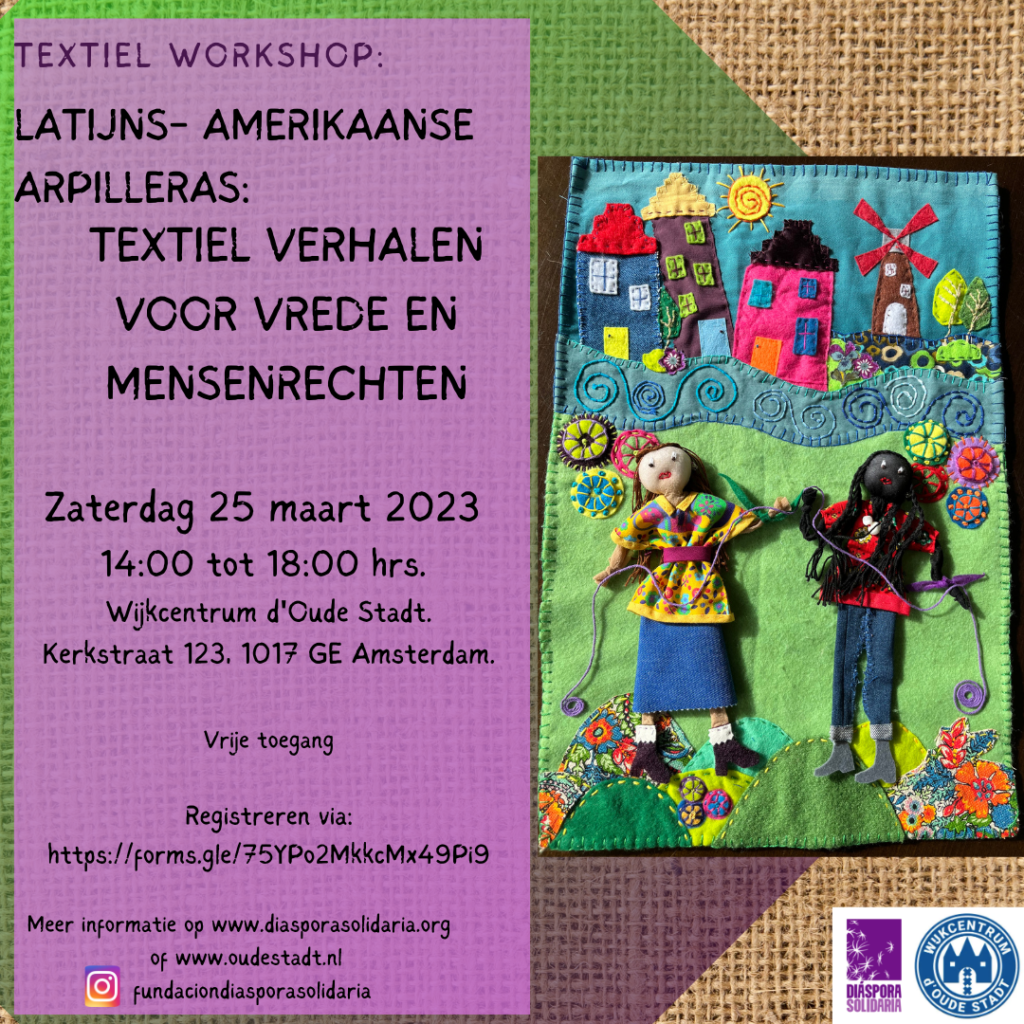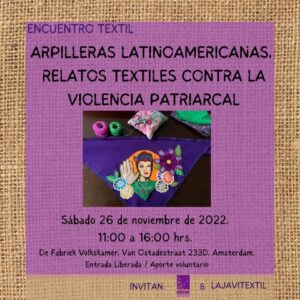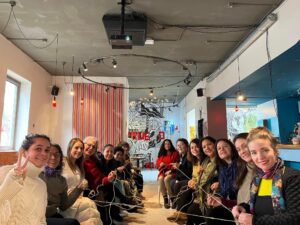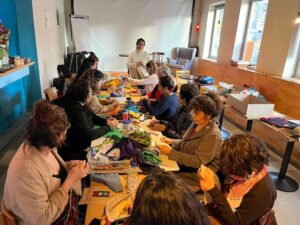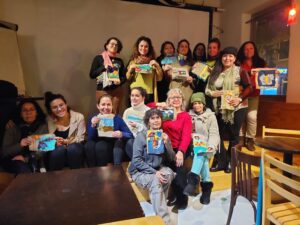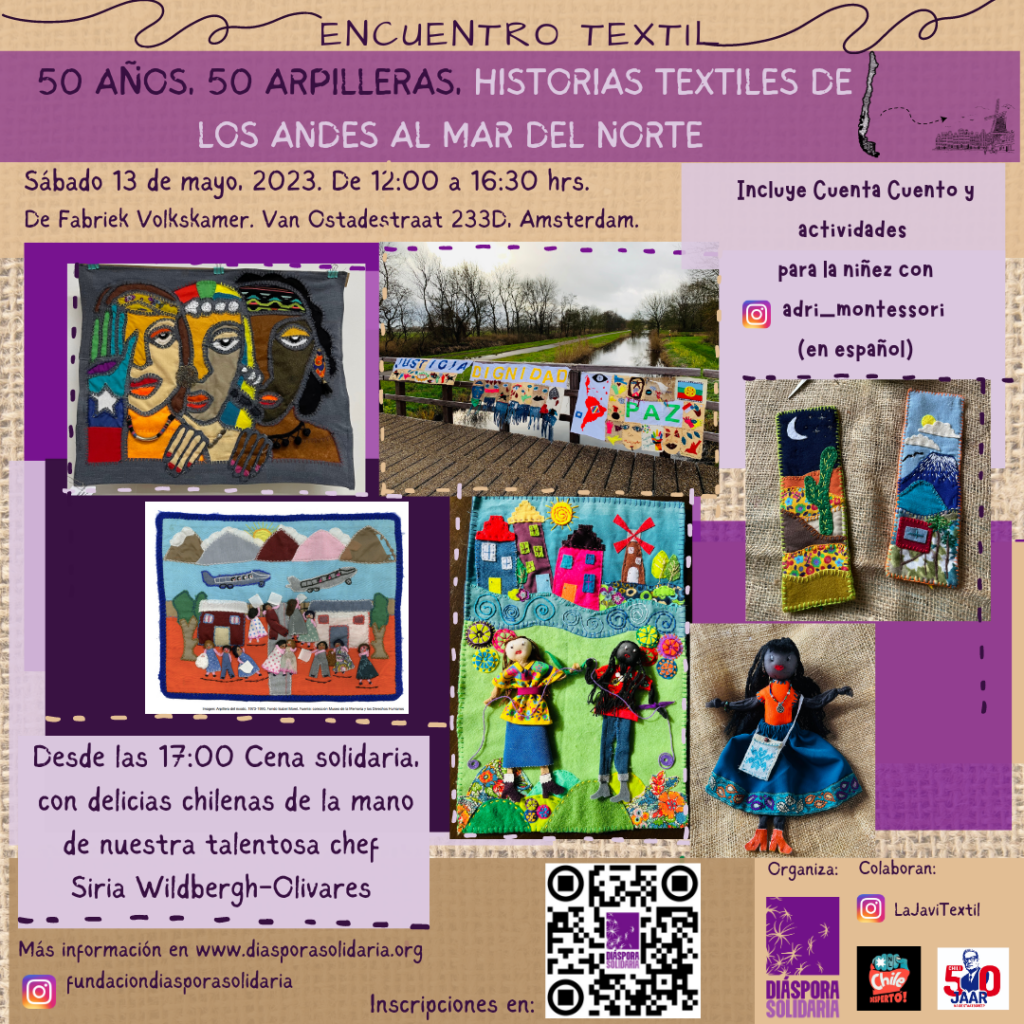
Descripción del Encuentro:
El 11 de septiembre de este año se cumplen 50 años del golpe de estado cívico militar en Chile, en que fue derrocado el presidente democrático Salvador Allende Gossens, marcando el inicio de una violenta dictadura de 17 años, que transformó la vida política, social y económica de las y los chilenos hasta hoy. Desde 1973, cientos de miles de chilena/os tuvieron que salir del país para preservar sus vidas o fueron forzados a salir por el gobierno de facto. De ellos, más de dos mil mujeres, hombres y niños llegaron a Países Bajos, donde los holandeses y demás residentes les acogieron solidariamente. Con el correr de los años, otras miles de personas han migrado a Países Bajos, por diversas razones, sus historias también se han ido entretejiendo con la cultura y las experiencias de vida de las personas que nos reciben en estas tierras lejanas.
“50 años, 50 Arpilleras, historias textiles de los Andes al Mar del Norte” es una manifestación textil que busca conmemorar estas historias de amor y solidaridad que entrelazan la vida de quienes migramos y de quienes nos reciben.
Sobre el 1er encuentro:
En este espacio queremos promover el ejercicio de la memoria colectiva, de nuestros lazos comunes con Chile y Latinoamérica, así como nuestras experiencias migratorias hacia Países Bajos, por intermedio de las Arpilleras chilenas. Conoceremos su origen e historia, reflexionaremos sobre la importancia y atemporalidad de su mensaje, para la defensa de la paz y los Derechos Humanos. También se guiará a los participantes para desarrollar esta técnica y crear su propio relato textil, el que luego (Agosto 2023) será unido al relato de los demás, construyendo así un Mosaico Textil que narrará, entre telas e hilos, nuestras historias, anhelos, dolores y sueños, individuales y colectivos.
Este Mosaico será expuesto en diferentes encuentros,
galerías y espacios culturales, a partir de septiembre de 2023 en adelante.
¿A quién está dirigida esta convocatoria?
Esta convocatoria está dirigida a todas las personas que respeten los derechos humanos, a la comunidad chilena, de todas las generaciones, así como a la comunidad holandesa y de otros lugares del mundo, que se sientan interesados por ser parte de este emotivo espacio de memoria a la solidaridad internacional, el amor y la paz.
El espacio también contará con actividades especiales para la niñez, incluido un cuenta cuento de Los Andes (en español) y un actividad de pinta caritas, a cargo de nuestra amiga y colaboradora @adri_montessori.
El taller ha sido creado y será guiado por la colectiva Fundación Diáspora Solidaria, en colaboración con la artista textil @lajavitextil y la especialista en educación Montessori @adri_Montessori.
Costo:
- Admisión 5€ adulto, incluye todos los materiales para la Arpillera y patrones. Té, café, frutas y galletas.
- Niñas/os Gratis.
- La cena tiene un costo adicional de 8€.
Inscripciones en el siguiente link https://forms.gle/QEYZznUH396XbmDB9 o a través del siguiente código QR
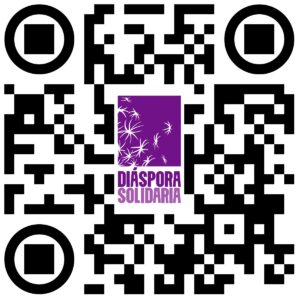
Sigue esta convocatoria a través de nuestras redes sociales Instagram o Facebook @fundaciondiasporasolidaria.
Consultas al correo electrónico info@diasporasolidaria.org, monica.barrazamadariaga@gmail.com.

